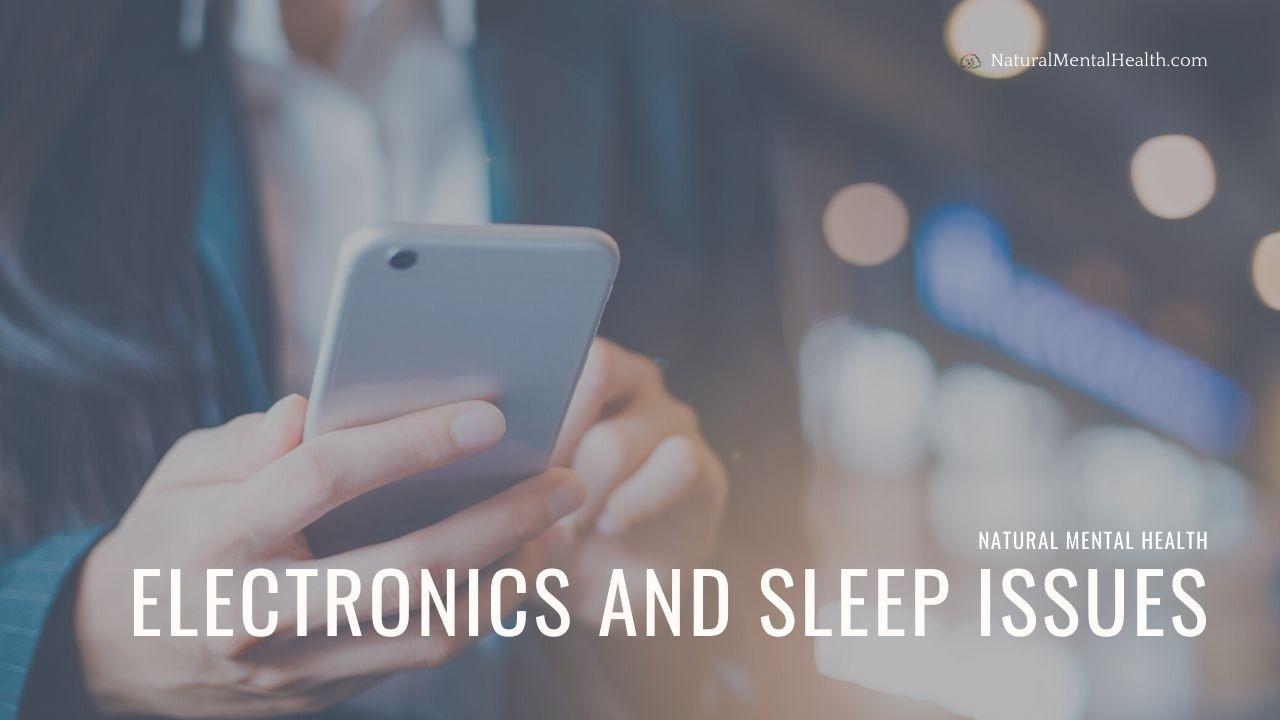
New Report on Electronic Media and Sleep
Aug 20, 2019Tim Culbert, MD and Henry Emmons, MD
The debate continues to rage as to whether cell phones, computers and other electronic devices are essential to our daily functioning or whether we should seriously consider eliminating these devices as much as possible due to the problems that excessive utilization of these gadgets can lead to. A new report just released from the Common Sense Media organization, titled The New Normal: Parents, Teens, Screens, and Sleep in the United States, details these troubling trends. As we always say at Natural Mental Health, “sleep is the foundation of good mental health.” We may be creating a generation of sleep-deprived teens, kids and parents and our favorite technologies may be a big part of the problem!
Benefits of Using Electronics
On one hand, there are smartphone apps that teach great skills such as mindfulness meditation and encourage physical fitness practices. In schools, many students are loaned a computer or tablet for use during the school year as a mandatory item to research topics, read textbook chapters and complete and e-mail homework assignments. Many, if not most, working adults use computers and cell phones as an indispensable part of their daily routine to support efficient task completion and effective communication.
Side Effects of Electronics
On the other hand, excessive use of all forms of electronic media including computers, cell phones, watching TV, and playing video games can lead to a plethora of problems. Examples of such issues can be:
- Increased sedentary behavior
- Lack of time in nature, stress
- Prevents kids and adults form healthy in-person social interactions
- Decreased amount of free, unstructured downtime which is essential for rest, recovery and creative thinking.
- Difficulty sleeping when exposed to blue light close to bedtime
Blue Light and Sleep Patterns
Recent studies have also shown that exposure to the blue light spectrum found in all electronic screens close to our scheduled bedtimes suppresses the release of melatonin (the brain’s sleep hormone) and leads to the delay of sleep onset for as long as 60-90 minutes!
The Latest Insights on Sleep and Electronics
New research from The Common Sense Media Organization shows that those glowing screens are keeping many of us—and our kids—from getting a good night's sleep. In a new report on device distraction, parents and teens reveal how device use affects their routines, relationships, and sleep habits—from where they keep phones at night to how often digital notifications wake them up (and why).
A brief summary of the key findings:
Parents and teens keep their mobile devices close by at night:
- 39% of kids and 62% of adults report that keep their cell phone within reach of their bed at night. Almost one third of teens state that actually have their mobile electronic device in bed with them.
Many teens and parents have their sleep disrupted by notifications:
- 36% of teens check their phone phone (for something other than the time) at least once during the night. 26% of parents report doing this as well.
Many adults and children/teens use screens before bedtime:
- 61% of adults and 70% of children/teens check their mobile device within 30 minutes of bedtime.
More kids now think that a parent spends too much time on their cell phone:
- Compared 26% of children in a 2016 survey, 39% of kids now wish their parent would get off of their mobile device. 38% of teens surveyed think their parents are addicted to their cel phone
RELATED ARTICLE
Modeling Screen Time for Kids (Even Babies)
Want less screen time for your kid? How's your screen time? Dig into these five key questions and action steps so that you can more effectively model what healthy screen time looks like. Learn more.








